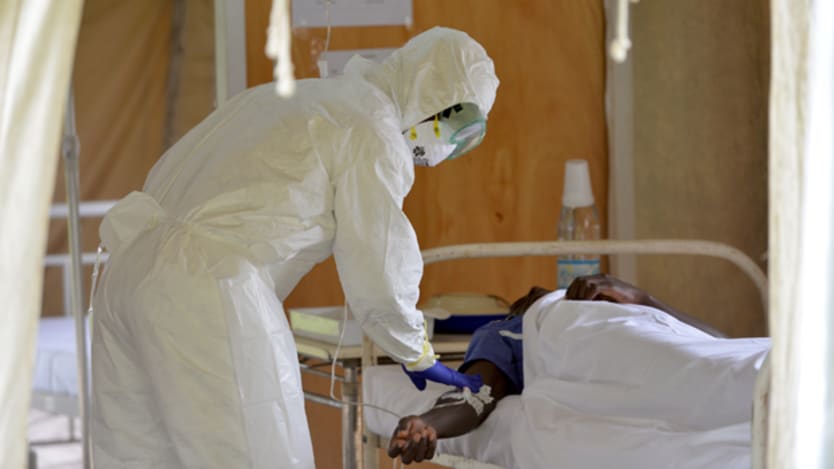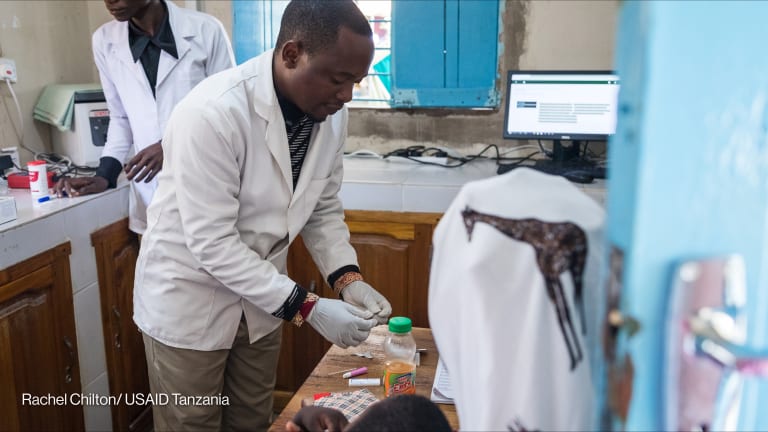
It is often said that it is in times of difficulty that we define who we are and who we want to be. This is true of individuals, communities and countries. This year, as we face unprecedented global health challenges, the same can be said of the systems that we put in place to ensure that everyone enjoys their right to good health.
The Ebola crisis — which started last year and which, at the time of writing, remains the definitive challenge to which the development and aid community must respond — is one such moment of adversity. And it is a crisis from which we must emerge with a clearer idea than ever before of the health systems that we need to have in place in every country in the world, as well as a firmer resolve to deliver them.
Ebola has shown how overwhelming it can be when a devastating disease strikes a fragile health system. Sierra Leone, Liberia and Guinea are countries in which most communities already had little in the way of health provision and in that sense, the response to the outbreak started with a significant handicap.
Unsurprisingly, then, one thing that local people consistently stressed to me on a recent visit to the region was the importance of not losing the opportunity that now exists to put in place more robust health structures. Take the community care centers we at Plan rapidly constructed to help separate, care for and monitor suspected Ebola patients — might we repurpose these, for example, as maternity clinics?
See more stories from this series:
● The post-2015 framework: A melting pot of targets and indicators, where to begin?
● UHC: A spoonful of sugar to ensure health care for everyone
The need for good quality health services has rarely been so starkly illustrated — and so the opportunity to work with governments to deliver them should not be missed.
Looking beyond West Africa, the crisis has delivered a wake-up warning that the whole world must heed. Consider the global challenges we face — every day, 800 women die from preventable causes related to pregnancy and childbirth; the ongoing battles against HIV and AIDS, tuberculosis, malaria; the growing burdens of illnesses such as cancer and heart disease.
It’s abundantly clear that far from being the exclusive burden of poorer countries, effective, secure health systems that will work in the long term should be a universal prerogative.
So my message is this: Let’s not just deal with the Ebola crisis and then carry on with “business as usual” — let’s seize the moment, stepping up our efforts to protect against future crises in all regions.
Let’s encourage all countries to strengthen their health systems. It’s about engaging with communities, mobilizing youth leaders to advocate for equal access to health for everyone regardless of gender, educating sufficient health workers for future generations, and implementing a timely, efficient process to ensure that the most marginalized and vulnerable, wherever they are, have equal access and protection against whatever tomorrow’s health crisis may be. In this sense, our commitment to universal health coverage — equitable access to quality health services for all — has been strengthened by the Ebola outbreak.
Visiting our work in Sierra Leone, I met some of the most remarkable staff I’ve come across in my professional life. The people who, every hour of the waking day, were delivering food to quarantined families. Those who tirelessly and selflessly worked to decontaminate homes of people who had died, in spite of the possible stigma. One nurse in a Plan-run care center in Port Loko stood out: She hadn’t seen her family for four months, but continued to dedicate every ounce of her energy to protecting her community from this terrible disease.
As I left, my thought was this: If people in such trying circumstances can show such incredible resilience, we owe it to them to do all we can to ensure the same resilience exists in health systems everywhere.
This piece is part of a series of articles to be published in “Health Matters,” a news bulletin commissioned by Action for Global Health for European Health Month, as part of the European Year of Development 2015. The paper brings together key stakeholders working on health to confront the challenges of the post-2015 framework, provide recommendations on the means of implementation, and raise awareness on the importance of health for all.
Search for articles
Most Read
- 1
- 2
- 3
- 4
- 5








